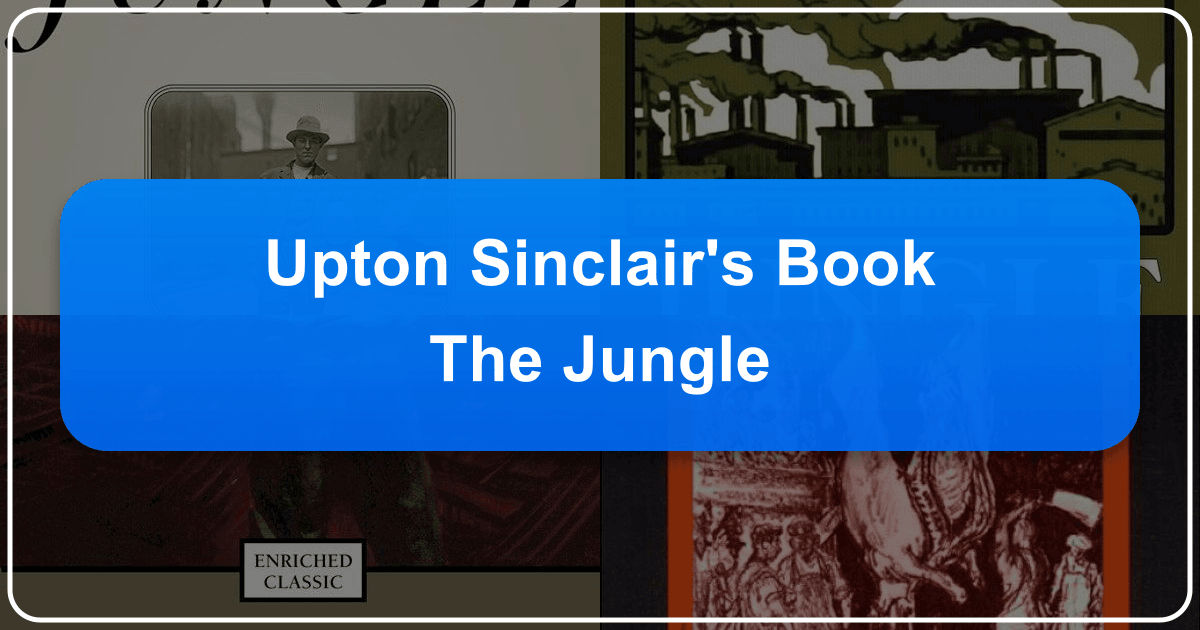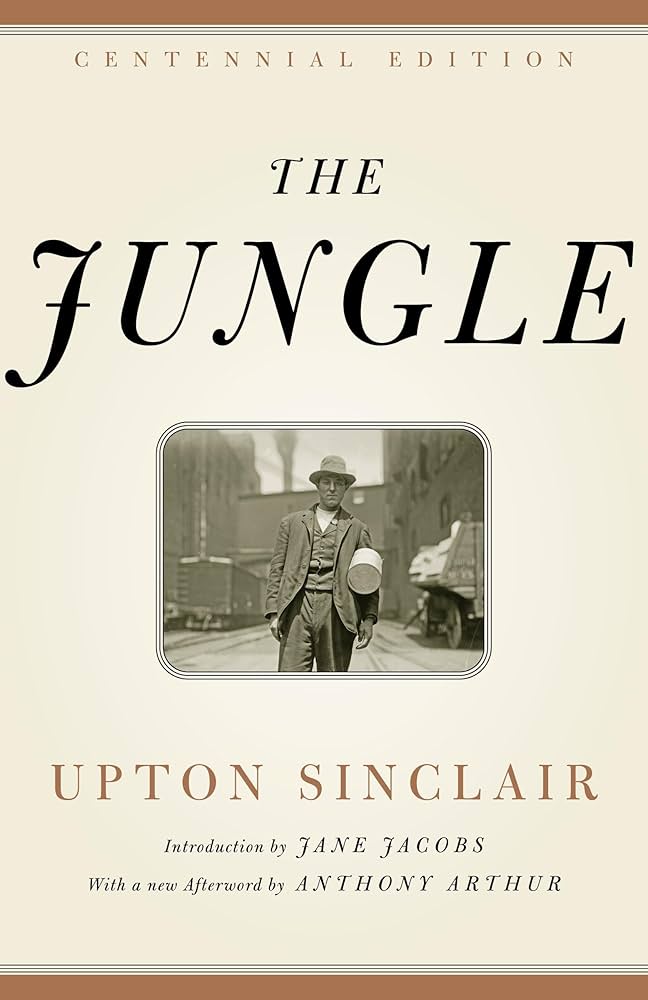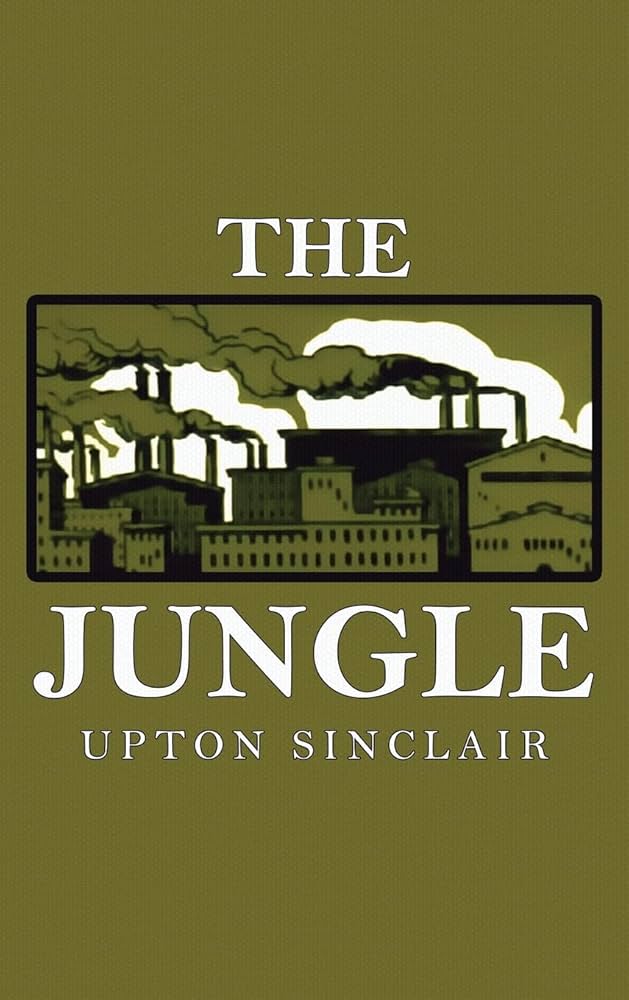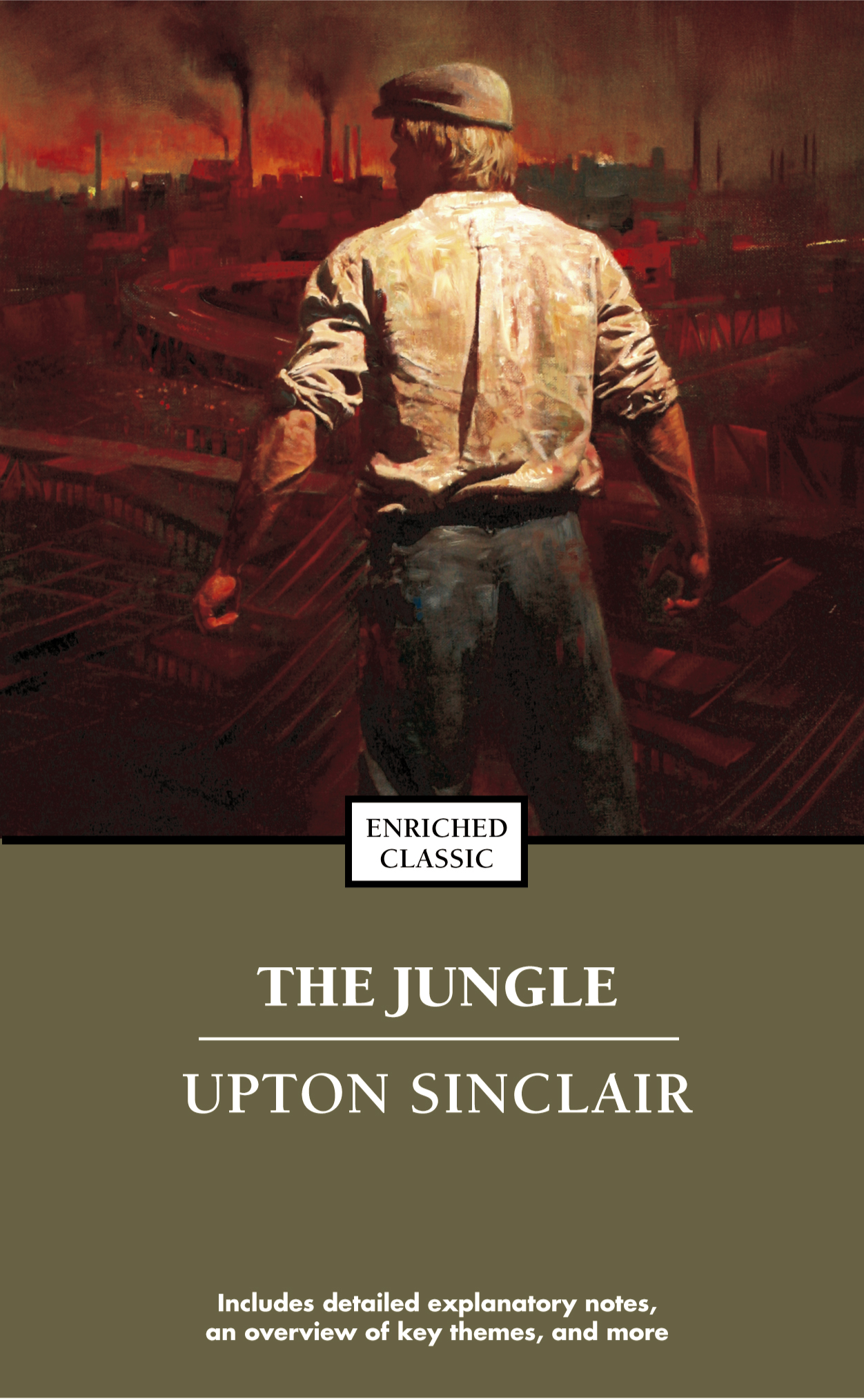Upton Sinclair's Book "The Jungle": A Comprehensive Analysis

Upton Sinclair’s The Jungle, published in 1906, remains a powerful and enduring work of American literature. More than just a novel, it serves as a potent social commentary, a historical document, and a testament to the enduring power of the written word to effect change. This analysis explores The Jungle across multiple facets, drawing upon the book’s content and applying a framework informed by common website topic categories: Books, Authors, Reading and Learning, Libraries, and Cultural Impact.
I. The Jungle as a Book: Genre, Classification, and Reception
The Jungle defies easy categorization. While primarily a work of fiction, its narrative functions as a vehicle for exposing the harsh realities of the Chicago meatpacking industry at the turn of the 20th century. This makes it a prime example of muckraking journalism, a style of investigative reporting that aimed to expose social ills and corruption. Its detailed descriptions of unsanitary practices and exploitative labor conditions transcend mere storytelling, presenting a stark portrayal of social injustice.

As a work of realistic fiction, The Jungle immerses the reader in the lives of Lithuanian immigrants, vividly depicting their struggles for survival in a new and often hostile environment. The novel’s naturalistic style, focusing on the characters’ daily lives and the deterministic forces shaping their fates, distinguishes it from more romanticized or idealized portrayals of the immigrant experience.
The book’s genre-bending nature is reflected in its enduring popularity and its impact on different audiences. While initially intended to galvanize support for socialist reforms, its graphic depictions of food contamination also resonated with a broader public, leading to significant legislative changes. This duality has contributed to its classification as both a classic of American literature and a significant bestseller in its time. The book’s enduring presence on bookshelves and in literature courses reflects its ongoing relevance as a study of social issues, immigration, and the American Dream. Numerous book reviews throughout the years highlight the book’s controversial nature and its sustained impact on readers.

I.A. The Jungle’s Place in Literary History
The Jungle stands as a landmark in the development of proletarian literature, which focuses on the lives and struggles of the working class. It helped establish a literary tradition of social realism, influencing subsequent novels that addressed similar themes of poverty, exploitation, and the human cost of industrialization. Its impact extends beyond literary circles, contributing to a heightened awareness of social justice and consumer protection. Its continuing presence in educational curricula reflects its value as a resource for understanding American history and social movements.
II. Upton Sinclair: Authorial Biography, Style, and Influences
Upton Sinclair (1878-1968) was a prolific American author and socialist activist whose life and work were inextricably intertwined. His upbringing instilled in him a deep empathy for the disadvantaged, an experience that profoundly shaped his writing. Sinclair’s biography reveals a life dedicated to social justice, marked by both literary success and political activism. He experienced poverty firsthand, which fueled his commitment to exposing social inequalities.

Sinclair’s writing style is characterized by its detailed descriptions, its focus on social realism, and its passionate advocacy for social change. His works are often dense and detailed, immersing the reader in the sights, sounds, and smells of the settings he portrays. This immersive style, while sometimes criticized for its length or detail, creates a visceral understanding of the conditions he describes.
The influences on Sinclair’s writing are diverse, ranging from the social realism of European novelists to the burgeoning American tradition of investigative journalism. He drew inspiration from personal experiences with poverty and injustice, and he was deeply influenced by socialist ideology.
Sinclair’s famous works, besides The Jungle, include The Brass Check, a critique of American journalism, and the eleven-volume Lanny Budd series, a fictionalized account of world history. These works collectively display his consistent commitment to using literature as a tool for social critique and political activism. His writing style demonstrates a thoroughness of research and commitment to factual representation, blending fictional narrative with detailed sociological observations.
II.A. Sinclair’s Socialist Beliefs and The Jungle
Sinclair’s socialist beliefs are central to understanding The Jungle. Although the novel’s immediate impact stemmed from its expose of unsanitary conditions in the meatpacking industry, Sinclair’s ultimate aim was to highlight the plight of workers under capitalism and to advocate for socialist solutions. The novel’s ending, showing Jurgis’s conversion to socialism, underscores this explicit political agenda.
III. Reading and Learning from The Jungle: Summaries, Educational Value, and Life Lessons
The Jungle offers readers a multifaceted experience: a compelling narrative, a social history lesson, and a wealth of life lessons.
A summary of the novel would encompass the Rudkus family’s journey from their idealistic vision of America to their descent into poverty and exploitation in Chicago’s stockyards. The narrative follows their struggles against disease, hunger, and a system that actively works against them. The novel also depicts the rampant corruption prevalent within the meatpacking industry and city government.
The educational value of The Jungle is immense. It provides a crucial window into the lives of early 20th-century immigrants and the challenges they faced. It offers insights into the conditions of industrial labor and the prevalence of social and economic inequalities. Furthermore, the book serves as a case study in the powerful role of investigative journalism in triggering social and political change.
The life lessons to be gleaned from The Jungle are varied and potent. The novel highlights the importance of social justice, the precariousness of the human condition, and the consequences of unchecked corporate greed and political corruption. It challenges readers to confront uncomfortable truths about economic inequality and the need for systemic reform. For students of history and social science, The Jungle offers a rare blend of fictional storytelling and thorough socio-political analysis. The vivid descriptions and character development make complex historical issues accessible and engaging.
IV. Libraries and Archives: Preserving The Jungle’s Legacy
The Jungle’s significance is reflected in its presence in libraries and archives worldwide. Public libraries across the United States and internationally house multiple editions of the novel, making it accessible to a wide range of readers. Digital libraries have further expanded access, offering online versions and related resources. Rare collections and archives likely hold early editions of the book, including Sinclair’s original manuscripts, providing valuable insights into his writing process and the book’s evolution. The book’s enduring relevance is ensured through its preservation within physical and digital library systems, ensuring its accessibility to researchers and readers alike. Its presence in various library formats, from physical copies to online versions and digital archives, reflects its continued importance and study.
V. Cultural Impact: Literary Influence, Adaptations, Awards, and Communities
The Jungle’s cultural impact is profound and multifaceted. Its literary influence is evident in the subsequent works of social realism that have built upon its themes and techniques. While the book has never been out of print since its initial release, its importance extends beyond its literary merit: the book has been adapted into several films, plays, and other media, demonstrating its adaptability to different creative forms. The book garnered significant attention in its time, though it didn’t win any major awards (it predates many of those awards’ establishments). Its lasting impact is largely due to the legislative changes it inspired, which has become a keystone in food safety regulations.
The Jungle has fostered communities of readers and scholars who continue to engage with its themes and its historical context. Its enduring power lies in its capacity to spark discussion, challenge assumptions, and promote awareness of crucial social and political issues. The book continues to fuel conversations about societal structures and human behavior in the context of economic exploitation and power dynamics, proving its timeless relevance.
V.A. The Lasting Impact of The Jungle
The legacy of The Jungle is undeniable. The immediate public outcry following its publication led directly to the passage of the 1906 Pure Food and Drug Act and the Meat Inspection Act, landmark legislation that significantly impacted food safety regulations in the United States. While Sinclair’s hoped-for socialist revolution didn’t materialize, The Jungle stands as a powerful testament to the ability of literature to influence public opinion and inspire real-world change. Its impact continues to resonate in discussions about labor rights, corporate responsibility, and the ethical dimensions of the food industry. The novel’s influence can be seen in subsequent works of social commentary, prompting further investigation into and legislative action concerning worker’s rights and food safety. It remains a vital text for understanding both the history and continuing challenges of industrial capitalism and its impact on society.